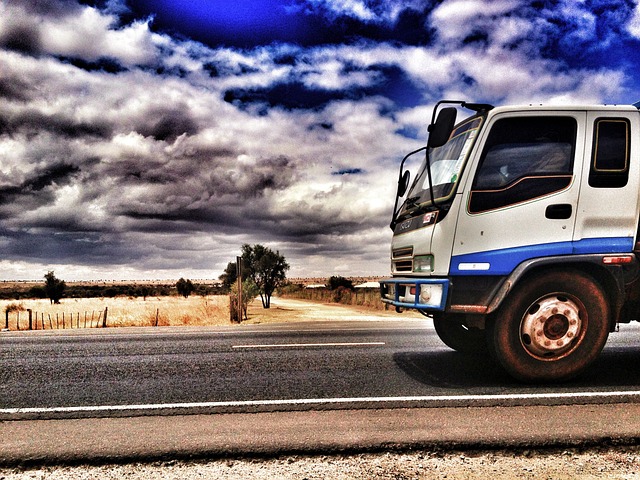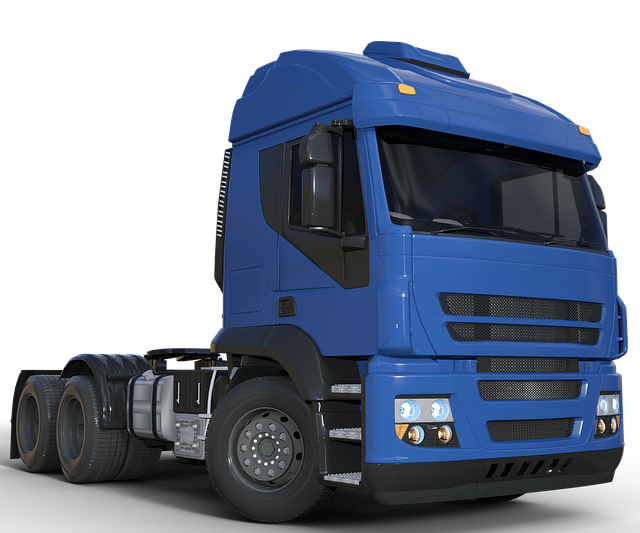For nascent trucking enterprises, acquiring tailored startup trucking insurance is a foundational step to navigate the inherent risks of road operations. Essential components include robust liability insurance to protect against third-party claims and financial losses, cargo coverage to safeguard goods during transit, and physical damage insurance for vehicle repairs post-accidents or non-collision events. Startups should compare offerings from various insurers to find affordable yet comprehensive trucking insurance that meets their unique needs without straining the budget. It's crucial for new fleet owners to work with knowledgeable agents who can tailor a customized insurance plan, balancing coverage and cost. This approach ensures small business truck operations are protected against unforeseen events while maintaining financial stability in the competitive trucking industry.
Embarking on the journey of fleet ownership in the trucking sector can be a complex and multifaceted endeavor, particularly when it comes to deciphering insurance requirements. This article serves as a comprehensive guide for new business owners navigating the intricacies of startup trucking coverage. We’ll explore key aspects of trucking insurance designed for new fleets, offering insights into how to balance robust protection with affordable options. From understanding the fundamentals of liability insurance for startups to securing cost-effective plans that include cargo and physical damage coverage, this piece aims to equip you with the knowledge needed to safeguard your investment and operate within the legal frameworks of the trucking industry.
Understanding the Essentials of Trucking Insurance for New Fleet Owners

For new fleet owners venturing into the trucking industry, grasping the essentials of trucking insurance is paramount. A robust startup trucking coverage encompasses various aspects to protect your business from unforeseen events. It’s crucial to consider liability insurance for startups, which safeguards against bodily injury and property damage caused by your fleet. This not only ensures compliance with legal requirements but also safeguards the financial health of your small business truck insurance venture. Additionally, cargo coverage for new fleets is indispensable, as it protects the goods you transport from theft, loss, or damage during transit, a common concern for trucking operations.
When procuring affordable trucking insurance, it’s important to evaluate the extent of physical damage insurance for your vehicles. This type of coverage typically includes collision and comprehensive protection, which can save you from costly repairs should your trucks be involved in accidents or suffer non-collision related damages. As a new business, assessing the offerings of various insurers will help you find a policy that balances coverage and cost effectively, ensuring your assets are protected without straining your budget. It’s advisable to work with knowledgeable insurance agents who understand the nuances of the trucking industry and can tailor a policy to the specific needs of your new fleet.
Navigating Startup Trucking Coverage: Balancing Protection and Affordability

For startup trucking businesses, securing comprehensive yet affordable trucking insurance is a critical step in mitigating risks on the road. New fleet owners must navigate through the various types of coverage available, with particular attention to liability insurance for startups. This coverage is designed to protect against third-party claims arising from accidents, ensuring that your new business isn’t financially crippled by unexpected legal costs. Additionally, cargo coverage for new fleets is indispensable, as it safeguards the goods you are entrusted with transporting—a vital aspect of maintaining client trust and operational continuity.
When considering small business truck insurance, it’s important to strike a balance between protection and cost-effectiveness. The right policy should include physical damage insurance, which covers your vehicles for damages resulting from collisions, theft, or natural disasters, ensuring that your fleet remains operational. Exploring different insurance providers can lead to finding affordable trucking insurance options that provide the necessary coverage levels to protect your growing business without compromising on financial resources. It’s a strategic move for new fleets to carefully compare quotes and policies, taking into account both the immediate costs and the long-term benefits of each option. By doing so, you can make informed decisions that will safeguard your assets and provide peace of mind as you navigate the complexities of the trucking industry.
Comprehensive Guide to New Fleet Insurance: Liability, Cargo, and Physical Damage

For startup trucking businesses embarking on the journey of managing a fleet, navigating the intricacies of new fleet insurance is paramount. A robust trucking insurance package tailored for new businesses is the bedrock upon which your operation can thrive without the threat of financial ruin due to accidents or cargo loss. Opting for comprehensive coverage that encompasses liability, cargo, and physical damage insurance is a strategic move. Liability insurance startups should prioritize to protect against third-party claims arising from bodily injury or property damage caused by your vehicles. Cargo coverage new fleets is equally critical, as it safeguards the goods you transport from loss or damage during transit. Additionally, physical damage insurance ensures that repairs or replacements for your own trucks are handled should they be involved in accidents or suffer from other non-liability incidents.
Affordable trucking insurance options abound for small business truck owners who take the time to shop around and compare quotes. New fleet insurance plans can be tailored to your specific needs, offering a range of deductibles and coverage limits that fit both budget and risk profile. It’s essential to understand the fine print and the implications of different policy options; this ensures that you’re not overpaying for coverage you don’t need or, conversely, underinsured in areas where claims are likely to occur. As you scale your trucking operations, revisiting and adjusting your insurance package annually will help maintain a balance between protection and affordability, allowing your new fleet to navigate the road ahead with confidence.
Strategies for Securing Cost-Effective Small Business Truck Insurance Plans with Cargo and Physical Damage Coverage

For startup trucking businesses seeking robust yet affordable insurance plans, it’s crucial to explore options that cater specifically to new fleets. Trucking insurance for new businesses should encompass both liability and cargo coverage, protecting against third-party claims and potential loss or damage to the goods being transported. To secure cost-effective small business truck insurance, consider bundling policies with a reputable insurer that specializes in commercial vehicle coverage. This can often result in significant savings compared to purchasing individual coverages separately. Additionally, opting for higher deductibles can lower monthly premiums, balancing the risk between your fleet and the insurance provider.
When it comes to securing new fleet insurance, focusing on both cargo and physical damage coverage is paramount. Cargo coverage safeguards the goods in transit against theft, loss, or damage, which is particularly important for businesses that handle high-value or sensitive freight. Physical damage insurance, on the other hand, protects your trucks themselves from collisions, vandalism, or other incidents. To optimize your investment in affordable trucking insurance, startups should evaluate their risk profile and determine the appropriate level of coverage needed to support their operations without overextending their budget. This thoughtful approach ensures that new fleet owners are not only compliant with industry standards but also have a safety net for unexpected events on the road.
Navigating insurance requirements for a new fleet can be a complex task, but with the right guidance and approach, first-time fleet owners can secure robust protection that aligns with their budget. This article has demystified the process by breaking down the essential components of trucking insurance for new businesses, offering strategies to balance coverage needs with affordability, and detailing the nuances of new fleet insurance. From liability insurance startups to cargo coverage for new fleets and physical damage insurance, understanding these aspects is crucial for any small business owner in the trucking industry. By applying the insights from this comprehensive guide, you are now better equipped to safeguard your operations and assets on the road. Remember to revisit these guidelines as your fleet grows and your needs evolve to maintain optimal coverage and cost efficiency.
